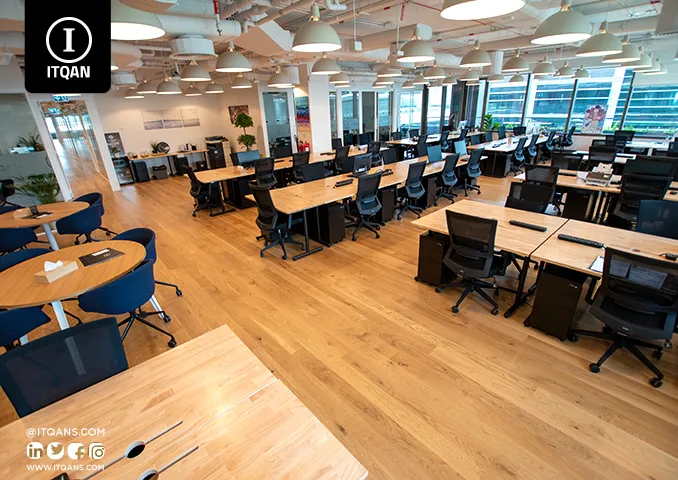Dubai Free Zone vs Mainland: Key Differences Explained
Starting your journey with a business setup UAE decision begins with a key choice: should you establish your company in a Dubai Free Zone or on the Mainland? Each jurisdiction offers unique advantages and regulations that cater to specific business goals. In this article, we’ll break down the primary differences, advantages, limitations, and critical considerations to help you make a well-informed decision.
Business Setup UAE: Overview of Free Zone vs Mainland
Dubai is an international business hub that allows entrepreneurs to choose between different legal structures. The two most common paths are the Free Zone setup and the Mainland company formation. Each offers distinct business potentials, operational freedoms, and licensing rules.
Key Differences Between Free Zone and Mainland Business Setup
1. Company Ownership
- Free Zone: Allows 100% foreign ownership.
- Mainland: Previously required a local sponsor, but now many activities allow 100% foreign ownership.
This shift in Mainland regulations is a game-changer for foreign investors seeking full control over their company.
2. Business Scope and Client Reach
- Free Zone: Businesses are restricted to operate within the Free Zone or internationally. A local distributor is needed to operate in the UAE market.
- Mainland: Can conduct business anywhere in the UAE and internationally.
3. Office Space Requirements
- Free Zone: Offers flexible office solutions, including shared desks and virtual offices.
- Mainland: Requires physical office space with a minimum area of 200 sq. ft.
4. Visa Eligibility and Employment Quotas
- Free Zone: Visa quotas depend on office size. Typically, 1 visa per 8–9 sq. m.
- Mainland: No fixed limit; depends on Ministry of Labour approval and office size.
5. Regulatory Authority
- Free Zone: Managed by the respective Free Zone Authority with its own set of regulations.
- Mainland: Regulated by the Department of Economic Development (DED).
Cost Considerations for Business Setup UAE
Budget is a significant factor when considering company formation. Typically, Free Zones offer more affordable packages due to limited operational requirements and incentives focused on startups. Mainland businesses may face higher startup costs due to office and compliance obligations, but they offer broader commercial freedom.
Licensing Options in Free Zone vs Mainland
Dubai offers various license types based on the business activity:
- Commercial License: Trade and retail businesses
- Professional License: Service-based and consultancy firms
- Industrial License: Manufacturing and industrial-related activities
While both Free Zones and the Mainland offer all these license types, Free Zones often streamline the process for foreigners. However, if your goal is broader market reach, Mainland licenses are favored.
To understand license types better, visit our article on Types of Trade Licenses in Dubai.
Taxation Differences for Free Zone and Mainland
The UAE offers a highly attractive tax environment. However, it’s essential to note the changes introduced in recent years:
- Free Zone: Generally enjoys corporate tax exemptions (up to 50 years), 0% VAT for some activities.
- Mainland: Subject to 9% corporate tax above thresholds (AED 375,000 as of 2023), VAT applies where relevant.
Recent tax reforms make it necessary to consult tax experts before making a final decision. You can refer to UAE Government Portal for latest updates.
Pros and Cons of Dubai Free Zones
Advantages
- 100% foreign ownership
- Tax exemptions and customs duty benefits
- No import or export duties within Free Zone territories
- Simplified setup process
Limitations
- Restricted local market access
- Dependence on Free Zone authority rules
- Limited expansion opportunities without re-registration
Pros and Cons of Dubai Mainland Setup
Advantages
- Operate anywhere in the UAE
- Wider client base – both B2B and B2C
- Eligible for government contracts
- More scalable if targeting local consumers
Limitations
- Higher initial cost
- Compulsory office space purchase or lease
- More government interaction and compliance
Which One Should You Choose?
Deciding between Free Zone and Mainland depends on your business model, commercial goals, and customer base. If you plan to conduct business within the UAE extensively and sell to the local market, a Mainland setup offers more advantages. But if your goals are export-oriented or you prefer minimal overhead, a Free Zone offers more flexibility.
For a deeper comparison, explore our article Dubai Free Zones vs Mainland – Where to Set Up Your Business.
Legal and Regulatory Requirements
Mainland businesses must register with the Department of Economic Development (DED) and adhere to UAE Commercial Companies Law. Free Zone companies, on the other hand, are governed by their own Free Zone authority regulations. Regardless of the model, obtaining the correct license, establishing office space, and visa processing remain key components of the business formation process.
Conclusion: Choosing the Right Business Setup UAE
Both Dubai Free Zone and Mainland offer compelling opportunities depending on your company’s needs. For international trade and zero-tax environments, Free Zones present ideal conditions. For a broader market reach and long-term scalability, the Mainland might be more suitable.
If you’re still unsure about which direction to take, learn more in our detailed guide on What You Need to Know Before Opening a Company in Dubai.
For the most up-to-date legal requirements, refer to the UAE Government Portal.












